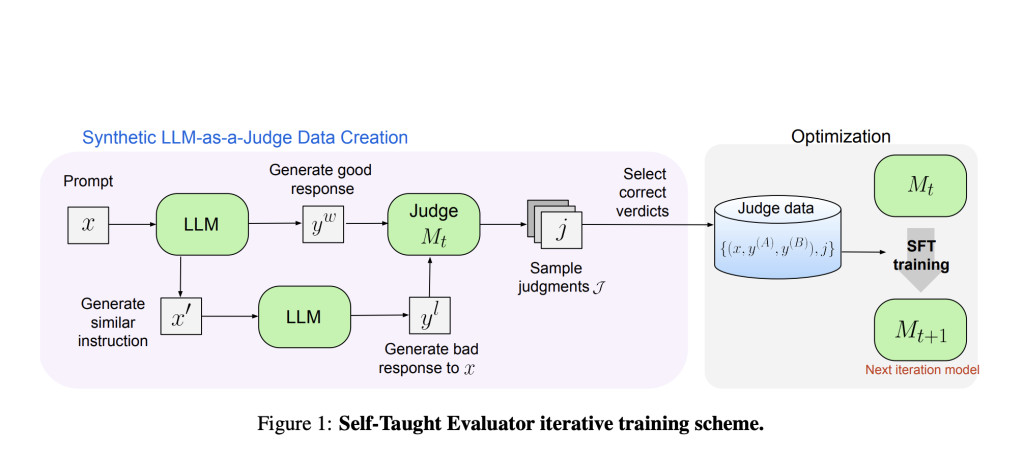Advancements in NLP have led to the development of large language models (LLMs) capable of performing complex language-related tasks with high accuracy. These advancements have opened up new possibilities in technology and communication, allowing for more natural and effective human-computer interactions.
A significant problem in NLP is the reliance on human annotations for model evaluation. Human-generated data is essential for training and validating models, but collecting this data is both costly and time-consuming. Furthermore, as models improve, previously collected annotations may need to be updated, reducing their utility in evaluating newer models. This creates a continuous need for fresh data, which poses challenges for scaling and sustaining effective model evaluations. Addressing this problem is crucial for advancing NLP technologies and their applications.
Current methods for model evaluation typically involve collecting large amounts of human preference judgments over model responses. These methods include using automated metrics for tasks with reference answers or employing classifiers that output scores directly. However, these methods face limitations, especially for complex tasks where multiple valid responses are possible, such as creative writing or coding. The high variance in human judgments and the associated costs highlight the need for more efficient and scalable evaluation techniques.
Researchers at Meta FAIR have introduced a novel approach called the “Self-Taught Evaluator.†This method eliminates the need for human annotations by using synthetically generated data for training. The process begins with a seed model, which produces contrasting synthetic preference pairs. The model then evaluates these pairs and improves iteratively, using its judgments to enhance its performance in subsequent iterations. This approach leverages the model’s capability to generate and evaluate data, significantly reducing dependency on human-generated annotations.
The proposed method involves several key steps. Initially, a baseline response is generated for a given instruction using a seed LLM. A modified version of the instruction is then created, prompting the LLM to generate a new response designed to be lower quality than the original. These paired responses form the basis for training data. The model, acting as an LLM-as-a-Judge, generates reasoning traces and judgments for these pairs. This process is repeated iteratively, with the model continually improving its judgment accuracy through self-generated and self-evaluated data, effectively creating a cycle of self-improvement.
The performance of the Self-Taught Evaluator was tested using the Llama-3-70B-Instruct model. The method improved the model’s accuracy on the RewardBench benchmark from 75.4 to 88.7, matching or surpassing the performance of models trained with human annotations. This significant improvement demonstrates the effectiveness of synthetic data in enhancing model evaluation. Furthermore, the researchers conducted multiple iterations, further refining the model’s capabilities. The final model achieved 88.3 accuracy with a single inference and 88.7 with majority voting, showcasing its robustness and reliability.
In conclusion, the Self-Taught Evaluator offers a scalable and efficient NLP model evaluation solution. By leveraging synthetic data and iterative self-improvement, it addresses the challenges of relying on human annotations and keeps pace with the rapid advancements in language model development. This approach enhances model performance and reduces the dependency on human-generated data, paving the way for more autonomous and efficient NLP systems. The research team’s work at Meta FAIR marks a significant step forward in the quest for more advanced and autonomous evaluation methods in the field of NLP.
Check out the Paper. All credit for this research goes to the researchers of this project. Also, don’t forget to follow us on Twitter and join our Telegram Channel and LinkedIn Group. If you like our work, you will love our newsletter..
Don’t Forget to join our 47k+ ML SubReddit
Find Upcoming AI Webinars here
The post Meta presents Self-Taught Evaluators: A New AI Approach that Aims to Improve Evaluators without Human Annotations and Outperforms Commonly Used LLM Judges Such as GPT-4 appeared first on MarkTechPost.
Source: Read MoreÂ

